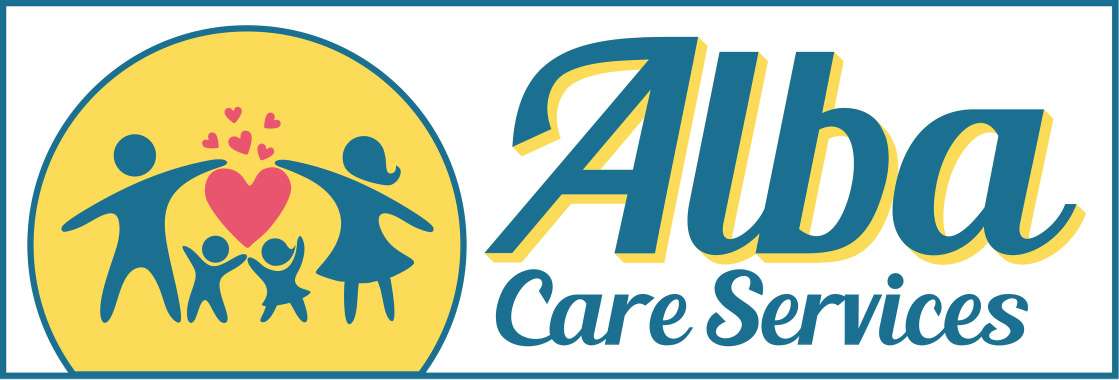Foster parents do receive a form of compensation that is typically referred to as a “foster care subsidy”. This is not an income but rather a stipend intended to help cover the cost of taking care of a foster child. The amount varies greatly depending on the location, the needs of the child and the agency involved. It’s important to remember that fostering a child is a substantial commitment, not a job, and the subsidy is there to make sure foster parents are not financially burdened by the process.
Becoming a Foster Parent: Changing Lives and Creating Forever Bonds

A foster parent is someone who steps in to provide a safe, nurturing environment for children who cannot live with their biological parents due to various reasons, which often include neglect, abuse, or parental substance abuse. Foster parents provide a temporary residence for these children, offering them safety, care, and support. They work closely with social workers and the child’s family (where appropriate) to facilitate reunification or to help the child transition to a new, permanent home.
Becoming a foster parent requires a deep commitment, patience, empathy, and the ability to provide a loving home for children going through a challenging period. Fostering children support foster parents in this important role and foster parent compensation may be available to help support the needs of the child and the foster family.
Becoming Foster Superheroes: Unleash the Power of Prospective Foster Parents
Prospective foster parents are individuals or couples considering the significant decision to foster. They undergo thorough assessment and training before being approved as foster parents. The process involves multiple steps including an initial inquiry, attending an orientation, undergoing a home study, and participating in pre-service training. This process is designed to ensure that prospective foster parents are adequately prepared for the responsibilities of fostering and that the home environment is suitable for a child. While the process might seem intensive, it’s important to remember that the ultimate goal is to ensure the safety and well-being of the child.
Foster Child – Providing a Loving Home for Children in Need
A foster child is a minor who has been placed into a foster care system, typically as a result of being unable to live safely with their biological parents due to various circumstances such as neglect, abuse, or parental substance abuse. These children may also be in the foster care system due to their parent’s death or inability to care for them due to illness or financial instability. While in foster care, they are under the temporary guardianship of a foster parent or a group home where they are expected to receive the basic care, support, and stability they need. The ultimate goal is to either reunite them with their own biological family when the situation improves or find them a new, permanent home through adoption.
Foster Family: Love, Care, and Forever Homes
A foster family is a collective unit that includes the foster parents and the foster child or children living in the same household. This family plays a crucial role in providing a supportive and nurturing environment for the foster child. This environment is essential as it aids in the child’s development and helps them overcome any trauma or distress they may have experienced. Although this family unit is often temporary, the bond and the impact they create can last a lifetime. In many cases, a foster family may become an adoptive family, legally assuming all parental responsibilities and privileges.
The Power of Foster Care: Changing Lives and Creating Forever Families
Foster care is a system in which a minor who has been placed into a ward, group home, or private home of a state-certified caregiver, referred to as a “foster parent.” The placement of the child is usually arranged through the government or a social-service agency. The institution, group home or foster parent is compensated for expenses unless with a wealthy host family. The state, via the family court and child protection agency, stand in loco parentis to the minor, making all legal decisions while the foster parent is responsible for the day-to-day care of the child.
The goal of foster care is to provide a safe, stable, nurturing environment where the foster child can thrive until they can return to their biological family or an adoptive family is found. Foster care is intended to be a temporary solution during a crisis or minor transition, and the goal is to keep the child in their home community if possible, to allow normal social development.
Financial Assistance – Get the Help You Need
Financial assistance for foster parents comes in various forms to help offset the costs associated with fostering a child, whether it be biological, adopted, or a child in foster care. This assistance, often referred to as a “foster care subsidy,” is provided to cover expenses such as food, clothing, school supplies, and any necessary medical expenses. The amount received can vary greatly depending on the region, the specific needs of the child, and the policies of the local child welfare agency.
It’s worth mentioning that this financial aid is not considered income but rather support for the care of the child, including the child’s basic foster care payments and foster care subsidies. In addition, foster parents may also be eligible for non-monetary support, including respite care, training, and counseling services. Prospective and current foster parents are encouraged to contact their local child welfare or foster care agency for detailed information about the financial assistance available in their area.
Mental Health: Understanding and Nurturing Your Well-being
Mental health is a pivotal aspect in the lives of both foster parents and foster children. Foster children, due to their past experiences, may have mental health concerns such as anxiety, depression or post-traumatic stress disorder. It’s vital for foster parents to be equipped to support a child dealing with these issues, often necessitating specialized training or professional support. Equally important is the mental well-being of the foster parents themselves, as the demands of foster parenting can be emotionally challenging.
Access to resources like counseling, support groups, and respite care can be invaluable in maintaining the mental health of the entire foster family. It’s essential for both foster parents and foster children to have their mental health needs recognized, validated, and addressed in a timely and appropriate manner to ensure a successful fostering journey.
Respite Care – Providing Essential Breaks for Caregivers and Loved Ones
Respite care is a form of short-term substitute care provided to foster parents or caregivers, offering them a temporary break from their caregiving responsibilities. This relief can range from a few hours to several days, depending on the needs of the foster family. Often, respite care is administered by a trained professional or another approved foster family.
The intention is to support the well-being of the foster family by preventing caregiver fatigue and ensuring the continuous provision of quality care to the foster child. Respite care is considered an essential part of the comprehensive support services offered to foster families, helping to maintain the stability and harmony of the foster home environment.
Additional Support Services
Additional support services play a crucial role in providing a robust network of resources and assistance to both foster children, biological or adopted children in foster care placement, and foster parents. These services may include regular training programs to equip foster parents with the skills necessary to handle various situations and challenges that may arise in the foster care journey.
Supportive counseling services are also provided to help foster parents and children, biological or adopted, process their emotions and navigate through any difficulties. Further, access to educational resources and programs ensures that foster children, biological or adopted, can continue their academic pursuits unhindered. In some cases, additional support services may also encompass legal assistance to guide foster families, biological or adopted, through the legal intricacies of the foster care system.
This comprehensive range of services is designed to provide a conducive environment for the growth and development of foster children, biological or adopted, and to ensure foster parents, biological or adopted, feel supported and capable in their caregiving roles.
Alba Care Services: Providing Top-Quality Care Solutions for All Your Needs
Alba Care Services is a reputed organization that provides multifaceted care and support services to foster families and children. With an unwavering commitment to the welfare of their foster families, Alba Care Services offers a range of services extending beyond mere financial assistance. These include regular training programs for foster parents, mental health support, access to educational resources, legal advice, and assistance with foster care placements. By prioritizing the well-being and development of both foster parents and children, Alba Care Services plays a significant role in creating a supportive and nurturing environment for the foster care community and their family members.
Frequently Asked Questions
How much do foster parents get paid us?
The compensation received by foster parents in the United States can vary significantly depending on the state and the specific needs of the child. Typically, foster parents receive a monthly stipend ranging from $400 to $800 per child. This payment, often referred to as a “foster care subsidy,” is intended to cover the child’s daily expenses, including food, clothing, and school supplies.
It’s also important to note that this financial aid is not considered income; it’s intended to support the care of the child. However, foster parents are recommended to consult with their local child welfare or foster care agency for exact information about the financial assistance available in their specific area.
What benefits do foster parents get in California?
In California, foster parents receive a variety of benefits to support their fostering journey. Financially, they receive a monthly stipend that follows the state’s standardized rate system, taking into account the child’s age and any special needs. The basic rate is $923 per month for children aged 0-4, $1,000 for children aged 5-8, $1,072 for children aged 9-11, and $1,224 for children aged 12-19.
Additionally, foster parents may be eligible for the specialized care increment, an additional payment for children requiring special care due to medical, behavioral, or other special needs. Apart from financial aid, foster parents in California also have access to comprehensive support services. This includes ongoing training, respite care, counseling services, and assistance with navigating the educational and healthcare systems. Remember, these benefits are designed to offset the costs of caring for the child and not intended as income for the foster parents.
How much does the state of Texas pay foster parents?
In Texas, the state provides foster parents with a monthly reimbursement that varies based on the age and needs of the child. The basic daily rate ranges from $22.44 for children up to 5 years old, to $27.95 for children between 16 and 19 years old. Additionally, foster parents caring for children with specific conditions or special needs may be eligible for higher payment rates.
These rates are intended to cover the cost of providing for the child’s daily needs, such as food, clothing, and school supplies. It’s important to remember that this financial assistance is not a salary or income. For accurate and detailed information, foster parents are advised to consult with the Texas Department of Family and Protective Services or a local foster care agency.
Do you get paid to be a foster parent in Idaho?
Yes, foster parents in Idaho do receive financial reimbursement for their role in providing care for foster children. This payment, also known as a foster care stipend, is designed to assist with the day-to-day costs of raising a child, such as food, clothing, and educational supplies. The specific amount varies depending on the age and individual needs of the foster child.
However, like in other states, this stipend is not considered income, but rather a form of support to help foster parents fulfill their responsibilities. For detailed information on the financial assistance provided to foster parents in Idaho, it is recommended to check with the local Department of Health and Welfare or a local foster care agency.





